#tartesso
Explore tagged Tumblr posts
Text

#star #tartesso #andalucia #art #gpt #elon #arte #hi #tiktoklive #aabon35 #ai #bard #andalusi #vector #playblackpointjuego #tiktok_video #NFT #souvenir #digitalart #token #share http: //arubio28814.blogspot. com #doll #tiktokersleaks http:// aabon35.blogspot.com #ia #TikTokライブ配信#tiktok
#star#tartesso#andalucia#art#gpt#elon#arte#hi#tiktoklive#aabon35#ai#bard#andalusi#vector#master#artwork#spain#playblackpointjuego⚫️#tiktok_video#NFT#souvenir#digitalart#token#share http://arubio28814.blogspot.com#doll#tiktokersleaks http://aabon35.blogspot.com#ia#TikTokライブ配信#tiktok
4 notes
·
View notes
Text
Time Travel Question 14: Ancient History VI and Earlier
These Questions are the result of suggestions from the previous iteration.
This category may include suggestions made too late to fall into the correct grouping.
Please add new suggestions below if you have them for future consideration.
I am particularly in need of more specific non-European suggestions in particular, but all suggestions are welcome.
#Time Travel#Mayans#The Sea People#Norse#Celtic#Neolithic#Doggerland#Early Humans#Polynesian Expansion#Tartessos#The Great Wall of China#Australian History#Indigenous History#The Silurian Period
690 notes
·
View notes
Text
I don't know if I've told you guys about the casas del turuñuelo archaeological site but they just found these incredible masks (a total of 5!!)

this is huge, they're the first representation of how tartessians look EVER. until know only aniconic art was found in tartessian ruins. also, these are from the 5th century, a time way past the supposed 'prime' of tartessos, which also reconfigures a lot of what we know about them
here's an article about these findings (in spanish). i'll try looking for an english one tho i doubt it exists.
605 notes
·
View notes
Photo
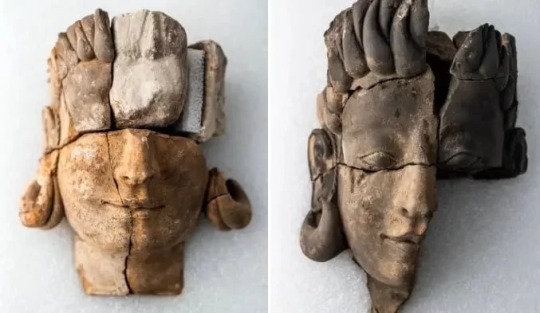
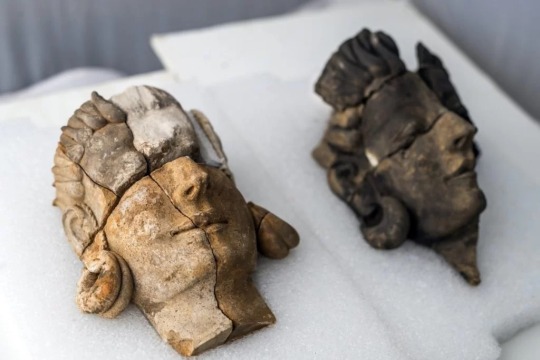
First Ever Human Depiction of Lost Tartessos Civilization Uncovered in Spain
Archaeologists representing Spain’s National Research Council (CSIS) excavating at the site of Casas del Turunuelo have uncovered the first human representations of the ancient Tartessos people.
The incredible results of an excavation that shed light on a mysterious and ancient civilization that flourished in southern Spain several centuries before Christ have been presented by Spain’s National Research Council.
The Tartessians, who are thought to have lived in southern Iberia (modern-day Andalusia and Extremadura), are regarded as one of the earliest Western European civilizations, and possibly the first to thrive in the Iberian Peninsula.
In the southwest of Spain’s Iberian Peninsula, the Tartessos culture first appeared in the Late Bronze Age. The culture is distinguished by a blend of local Paleo-Hispanic and Phoenician traits, as well as the use of a now-extinct language known as Tartessian. The Tartessos people were skilled in metallurgy and metal working, creating ornate objects and decorative items.
Archaeologists from Spain’s National Research Council (CSIS) on Tuesday presented the amazing results of excavation at the Casas de Turuuelo dig in Badajoz, in southwest Spain, as well as the results of the excavation.
Five busts, damaged but two of which maintain a great degree of detail, are the first human and facial representations of the Tartessian people that the modern world has ever seen.
The ornate depiction of the stone busts, as well the inclusion of jewellery (hoop earrings) and their particular hairstyles, resemble ancient sculptures from the Middle East and Asia.
These “extraordinary findings” represent a “profound paradigm shift” in the interpretation of Tartessian culture, excavation leaders Celestino Pérez and Esther Rodríguez said during the press conference.
Given the scarcity of Tartessian archaeological finds thus far, this ancient society is shrouded in mystery.
Tartessos’ port was located at the mouth of the Guadalquivir river in what is now Cádiz, according to historical records. In the fourth century BC, Greek historian Ephorus described it as a prosperous civilization centered on the production and trade of tin, gold, and other metals.
What is unknown is where the Tartessians came from, whether they were an indigenous tribe with Eastern influences or a Phoenician colony that settled beyond the Pillars of Hercules (the Strait of Gibraltar).
The team from Mérida’s Institute of Archaeology believes two of the busts discovered in what is thought to be a shrine or pantheon represent Tartessian goddesses, despite the fact that Tartessian religion was previously thought to be aniconic (opposed to the use of idols or images).
The stone busts’ facial depiction, as well as the inclusion of jewelry (hoop earrings) and their specific hairstyles, resemble ancient sculptures from the Middle East and Asia.
Archaeologists believe that the two goddesses, along with three other sculptures that were significantly more damaged, were part of a stone mural depicting four deities watching over a Tartessian warrior, as one of the defaced busts has a helmet.
The ornate effigies, which are thought to be around 2,500 years old, are also significant for art historians, as Ancient Greece and Etruria (an ancient civilization in modern-day central Italy) was previously recognized as the epicenters of sculpting during this time period.
By Leman Altuntaş.
#First Ever Human Depiction of Lost Tartessos Civilization Uncovered in Spain#Casas del Turuñuelo#ancient artifacts#archeology#archeolgst#history#history news#ancient history#ancient culture#ancient civilizations
304 notes
·
View notes
Text

This winged feline (500–400 B.C.) originally served as the front leg of a wooden chair or throne. Felines were popular in the art of many Mediterranean and Near Eastern cultures. Certain stylistic features of this piece, as well as the manner in which it was made from separate pieces of bronze joined together, suggest that this work was created in Spain, specifically in the kingdom of Tartessos. The form of the feline's brow is a Tartessian characteristic, as is the triangle design in the creature's ear. Image by Getty Museum. Learn more / Daha fazlası Tartessos https://www.archaeologs.com/w/tartessos/
#archaeologs#archaeology#archaeological#dictionary#history#art#mediterranean#culture#tartessos#spain#iberia#tartesian#arkeoloji#tarih#sanat#ispanya
67 notes
·
View notes
Text
#tartessos#tartessian alphabet#tartessian script#paleo hispanic alphabet#paleo hispanic script#maggie donahue#kaleena fraga#archeology#artifact#content#news
3 notes
·
View notes
Text

"Truth suffers from too much analysis".
-Ancient Fremen saying. Frank Herbert, Dune Messiah.
By attempting to approach any metaphysical experience from a scientific perspective, one will degrade such experience, because the scope of it is far superior to the scope science can pretend to obtain. One cannot have any scientific knowledge of a metaphysical experience since it is the metaphysical experience the one that will have you.
* Iberian Eye Idols
#myth#religion#European religion#paganism#metaphysics#Jung#guenon#dune#frank herbert#dune messiah#children of doom#julius evola#traditionalism#european values#Eye idols#Idol of Extremadura#Neolithic idols#Iberia#Iberians#tartessos#Celtiberians
23 notes
·
View notes
Text

Tartessian Culture: the Tartessian was a near-mythical culture in Iron Age Iberia which was rich in resources and relatively advanced forms of technology, including shipbuilding and metallurgy - and then it disappeared.
#history#historyfiles#archaeology#tartessian#cultures#ancient cultures#iberia#iron age#tartessos#pre-roman#early cultures
11 notes
·
View notes
Text
These are beautiful.
30 notes
·
View notes
Text


First human representations of the Tartessian culture have been found!
They've found 5 reliefs of faces in the Casas del Turuñuelo archaeological site, likely dating to the 5th century BC.
It is the first time that figurative human representations have been found in a site of the Tartessian culture, which until today was thought to be aniconic, which means that we thought it doesn't represent divinities, only representing them through sacred stones and animal and vegetal motifs.
Two of them represent female faces, one is a warrior with a helmet, and the other is likely a male face, but archaeologists still have to analyze it. They're richly adorned with jewels whose style has been identified in Tartessian jewelry found in other Tartessian sites of southern Iberia such as Cancho Roano.
Archaeologists of the CSIC team who found it are celebrating this extraordinary find and will quickly start to work on what this means for what we knew about Tartessians.
#this is very cool aaaaaah#turuñuelo was already an amazing site but now 🤩#💬#archaeology#tartessos#tarteso#casas del turuñuelo#art history#extremadura#ancient
13 notes
·
View notes
Text

COSTUME: Dress: Rosier - Amelie Dress NEW @ ACCESS! Gloves: ISON - Marlena Claw Gloves Hair: Magika - Abigail The Cursed Hair Face Paint: Melandra - Halloween Mask #7 DECOR: Bucket: Tredente - Bucket of Shame NEW @ ACCESS! Shoes (left): NeutralTones - Seeing Double Sandals Letters: Atelier Burgundy - Mail Delivery Candy: Half Deer - Candy Clutter Shoes (right): Maurer - Heart Heels Bed: Tartessos Arts - Elite Bed
#Rosier#ISON#Magika#Melandra#Tredente#NeutralTones#Atelier Burgundy#Half Deer#Maurer#Tartessos Arts#Access#SL#Second Life#31DaysofHalloween
1 note
·
View note
Text

distant cousins

Treasure of El Carambolo from Tartessos Civilization (6th Century BC). This assembly of gold jewelry was discovered in 1958 at hill of El Carambolo, near Seville, Spain.
1K notes
·
View notes
Text
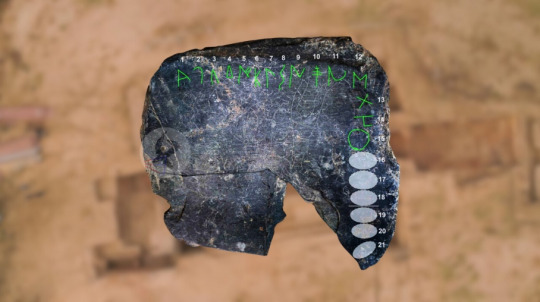
they just discovered an alphabet in the el turuñuelo tartessic site !!!!! this is huge !!!!!!
the tartessic culture is the oldest in the iberian peninsula, located in the southwestern corner of the peninsula and dated to around the 9th century BCE to the 5th/4th century BCE. in this map you can see in the brightest red the core of the culture, in darker red the dispersion to the north in later centuries, and in light red its cultural sphere, which spanned almost half of the peninsula.

if you are interested in the culture, i have a post about them.
el turuñuelo is an archaeological site located in guareña (guadajoz), in the northernmost point of the tartessos culture. it is with no doubt the singlemost important tartessic archaeological site, and i would even go on to say it is the biggest archaeological discovery of this century - at least in europe.
it was discovered in 2015, and it is a sanctuary or some sort of temple complex, which at first made the news because of its incredible state of preservation: a complete set of stairs and the remains of a horse hecatomb with at least 17 complete bodies were found in 2017.
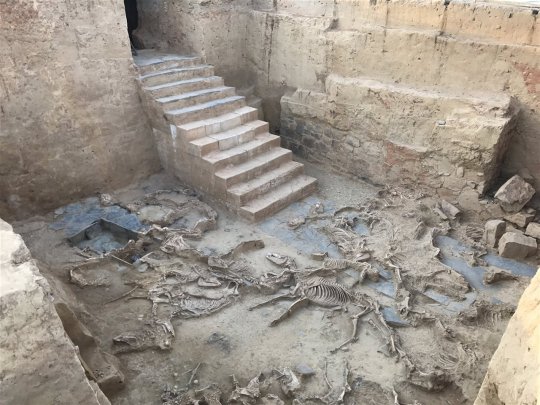
it already was the most important tartessic archaeological site just because of that (there are very few tartessic sites and most of them are not very well preserved), but after the excavations halted during covid, these last few years they returned to the site and they have made amazing discoveries. the most well-known and televised one, that made it to the news and i got to see when they set up an exposition about them last summer, are the faces of el turuñuelo in 2023, the first ever representation of tartessians by tartessians. i made a post about them, if you are interested.
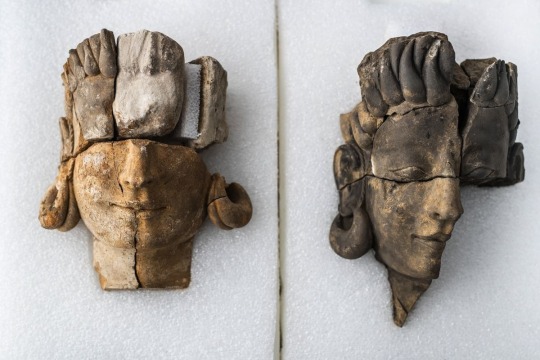
this year they not only found a large collection of tartessic ceramic - which lets us know that the temple was also an artisan and probably commercial center as well, as it was usual in ancient religious centers - but just a few days ago they discovered a slate plaque with human figures, that seem to be a sort of trial drawings made by some artisan

if they seem familiar, that's because it is in one of these plaques where the alphabet has been able to be traced down, being able to be confirmed only today (11/06/2024). this is only the third southwestern paleohispanic alphabet ever founded - an alphabet derived from the phoenician one - and the most recent. it is also distinct from the other two previously discovered ones, seeing some sort of dialectalism in the way this alphabet (or set of alphabets) worked. more importantly, it is the first one to note a tartessic language, which we know was not indoeuropean in nature and also distinct from the iberian languages of the mediterranean coast. this was a distinct language or languages.
this is very exciting not only because we have a tartessic alphabet, but also because we know from greek authors like strabo that tartessians were known to be scholars that had large libraries with all sorts of knowledge of the past. we also know that the greeks interacted with the tartessians. so. it is possible that, if el turuñuelo had one of these archives that strabo talked about, that more writting can be salvaged and not only that, we could find a bilingual text in tartessian and greek that could act as a rosetta stone to finally descipher tartessian, the oldest known language in the iberian peninsula.
i cannot wait to see what el turuñuelo brings us next, it's so very exciting !!!!!!!
#archaeology#tartessos#spain#turuñuelo#i'm so fucking excited man#el turuñuelo is the gift that keeps on living#and not only that#they started to excavate el turuñuelo because they did a survey beforehand and found a series of tumuli along the guareña valley#and fixated in el turuñuelo just cause#but there's more sites like el turuñuelo waiting to be excavated#IMAGINE WHAT WE'LL GET IN THE NEXT YEARS
37 notes
·
View notes
Text
Presencia greco-púnica en la península Ibérica
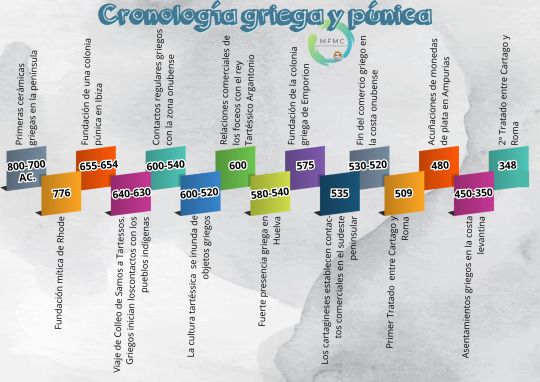
View On WordPress
0 notes
Text
youtube
Os invito a conocer algunos contenidos muy interesantes de mi libro Un viaje maravilloso en este enlace: https://www.youtube.com/watch?v=xacRBk-rzhg Un viaje por la historia de la humanidad que os llevará desde Babilonia o Egipto hasta Iberia o Tartessos, llevándoos también a conocer a los antiguos Teotihuacanos, a los olmecas, la cultura madre mesoamericana y los pueblos mayas de Guatemala, Belice y Yucatán. Os comparto los enlaces directos para comprarlo:
Cómpralo desde este enlace: https://chicosanchez.com/blog/f/un-viaje-maravilloso---enlaces-directos?blogcategory=Libros
#librosrecomendados#libros#chicosanchez#mayas#olmecas#toltecas#mixtecas#zapotecas#tartessos#iberos#babilonia#guatemala#historia#antropología#antigüedad#misterios#Youtube
1 note
·
View note
Text

couldn’t have said it better myself
but seriously I'm not even surprised, this is the same Disney that loves to meticulously hide black leads on their posters for Chinese releases (from Star Wars to Black Panther to The Little Mermaid remake) to not risk hurting their Chinese box office numbers (bc they'd rather be complicit with anti-Black racism in China) and that's not even the worst Disney has done so far (*cough*IsNotReal*cough*)
Imagine setting your fantasy kingdom in a real area where you can use all this as inspiration for your characters...

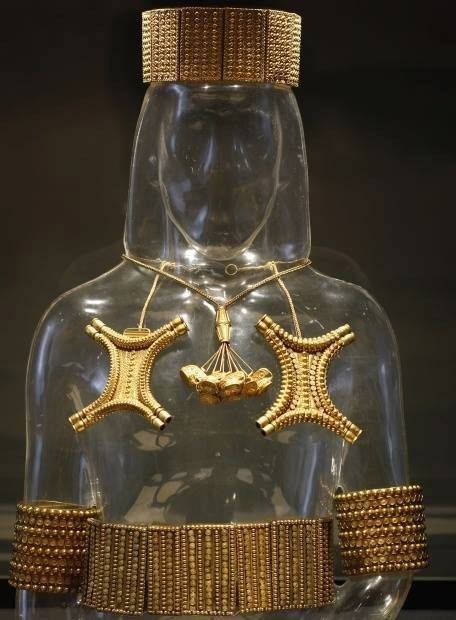

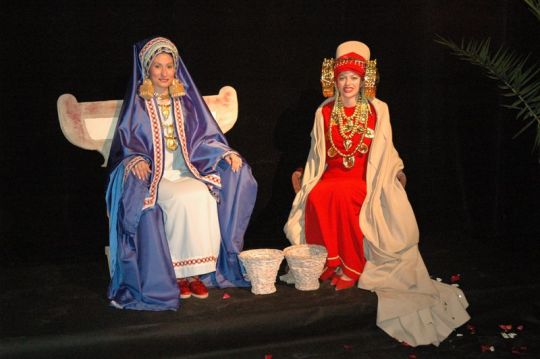

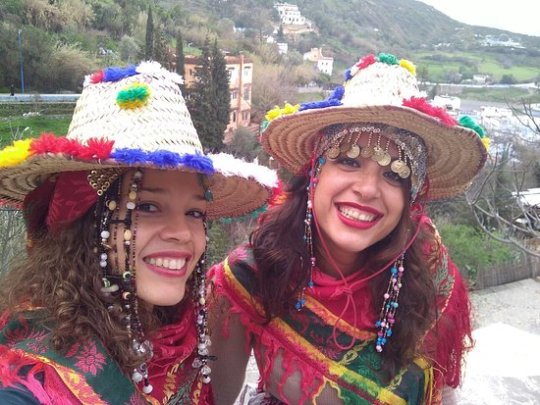

... but you go and create something as plain, generic, and soulless as this:
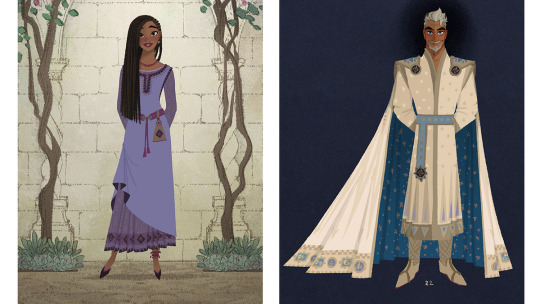
Well done, Disney!
#still bitter about raya and the last dragon's piss poor 'southeast asian representation'#and the subtly pro-imperialist undertones in the little mermaid remake#and also sending 2 million dollars to an apartheid state#free palestine#MENA#middle east and north africa#amazigh people#iberian peninsula#al andalus#morocco#tartessos#carthage#basque country#boycott disney
1K notes
·
View notes